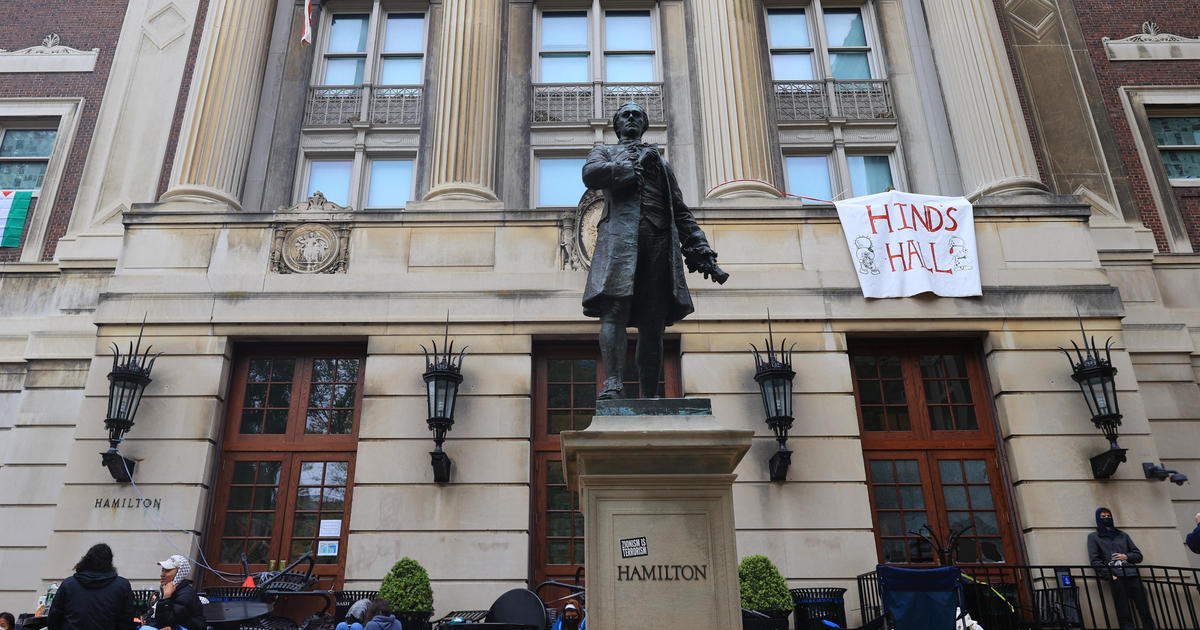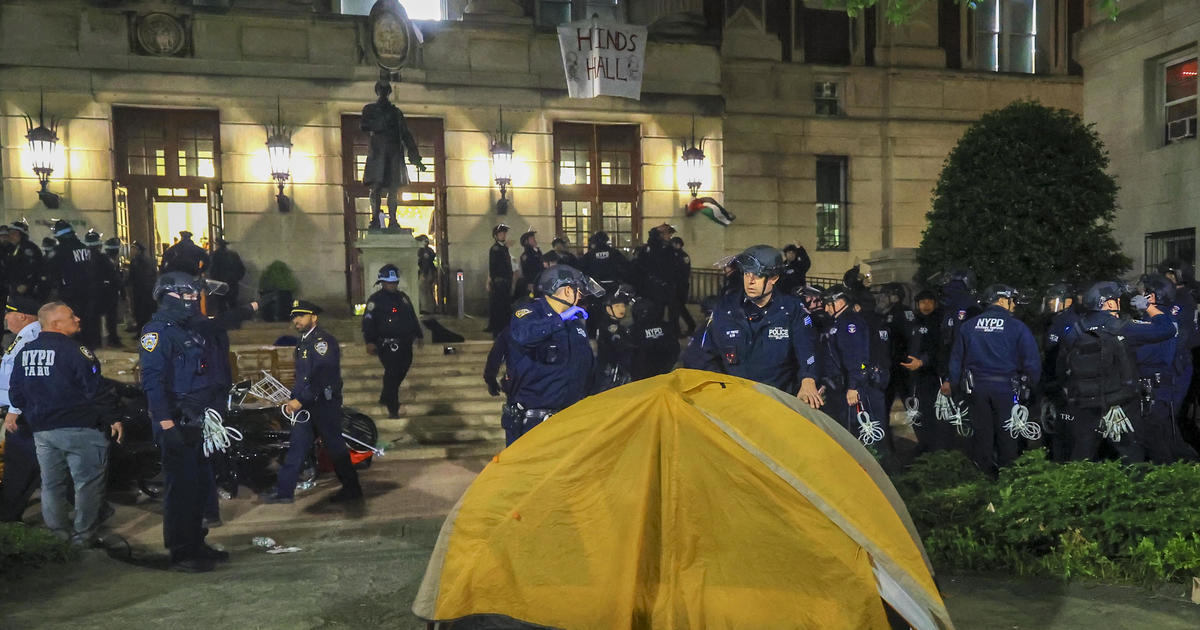Researchers Make Breakthrough In Effort To Cure AIDS Using Gene Therapy
NEW YORK (CBSNewYork/AP) - A major breakthrough in HIV therapy could be the beginning of a cure for AIDS.
As CBS 2's Dr. Max Gomez explained, scientists have genetically engineered white blood cells to make them immune to the AIDS virus. Researchers say it seems safe and promising.
The results give hope that this approach might one day free at least some people from needing medicines to keep HIV under control, a form of cure.
Scientists have known for decades that some people seem to be immune to the HIV infection, Gomez reported.
It turns out about 1 percent of northern Europeans have a genetic mutation that prevents the AIDS virus from infecting white blood cells, called T cells.
Now researchers have made normal T cells HIV-immune, Gomez reported.
The idea came from an AIDS patient who appears cured after getting a cell transplant seven years ago in Berlin from a donor with natural immunity to HIV.
Researchers are seeking a more practical way to get similar results by using gene therapy to modify patients' own blood cells.
A study of this in 12 patients was led by Dr. Carl June at the University of Pennsylvania. Results are in Thursday's New England Journal of Medicine. These are the first published results from this method, which also has been tried in several smaller studies of patients in California.
HIV usually infects blood cells through a protein on their surface, a "docking station'' called CCR5. A California company, Sangamo BioSciences Inc., makes a treatment that can knock out a gene that makes CCR5.
The 12 HIV patients had their blood filtered to remove some of their cells. The gene-snipping compound was added in the lab, and the cells were infused back into the patients.
Four weeks later, half of the patients were temporarily taken off AIDS medicines to see the gene therapy's effect. The virus returned in all but one of them, but the modified cells seemed to be protected from HIV infection and were more likely to survive than the cells that had not been treated.
"We knew that the virus was going to come back in most of the patients,'' but the hope is that the modified cells eventually will outnumber the rest and give the patient a way to control viral levels without medicines, said Dr. Pablo Tebas, one of the Penn researchers. That would be what doctors call a "functional cure,'' because the virus would still be present but held in check without treatment.
"That might be a step towards eventually making the immune system of the patients resistant to HIV," Tebas said.
The lone patient whose HIV did not return turned out to have one copy of the protective gene, so "nature had done half of the job already,'' Tebas said.
The National Institute of Allergy and Infectious Diseases sponsored the work with Sangamo and Penn.
"The ultimate goal is to create an immune system in the body that's been edited genetically so the cells are not capable of being infected with HIV,'' said institute director Dr. Anthony Fauci, "but we are a long way from there at this point.''
Jay Johnson, 53, who works for Action AIDS, an advocacy and service organization in Philadelphia, had the treatment more than three years ago. Although the virus rebounded when he temporarily went off HIV medicines, tests show his modified blood cells are still multiplying.
"Hopefully one day I'll be able to say I'm HIV negative again,'' he said.
Johnson has been HIV positive for more than 20 years. He considers himself lucky since he has remained healthy, but said his drugs are a daily reminder he has the virus.
About eight months ago, Johnson's doctors told him modified T cells are still circulating in his body.
"If I could stop the virus from being within me, it would just be absolutely wonderful," he said.
Much work needs to be done before this small study becomes an available therapy, but it is proof that the concept can work.
In addition, researchers found when the same genetic engineering is applied to stem cells, those cells make lots of HIV-immune white blood cells, which could be a long-term cure.
You May Also Be Interested In These Stories
(TM and © Copyright 2014 CBS Radio Inc. and its relevant subsidiaries. CBS RADIO and EYE Logo TM and Copyright 2014 CBS Broadcasting Inc. Used under license. All Rights Reserved. This material may not be published, broadcast, rewritten, or redistributed. The Associated Press contributed to this report.)



